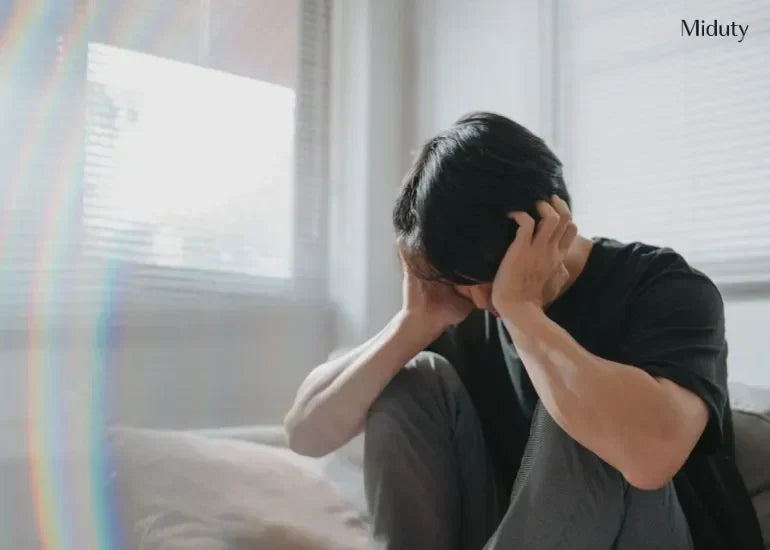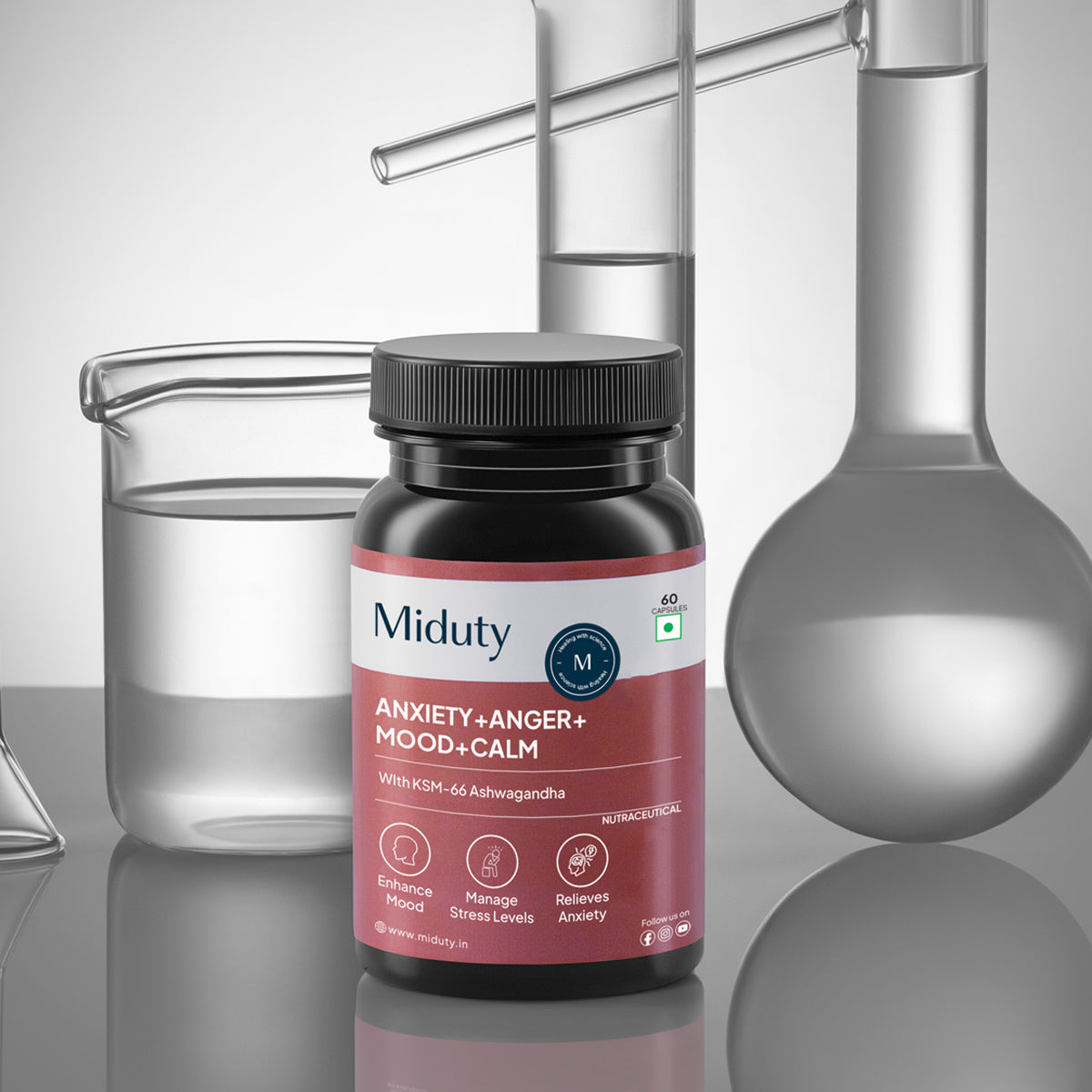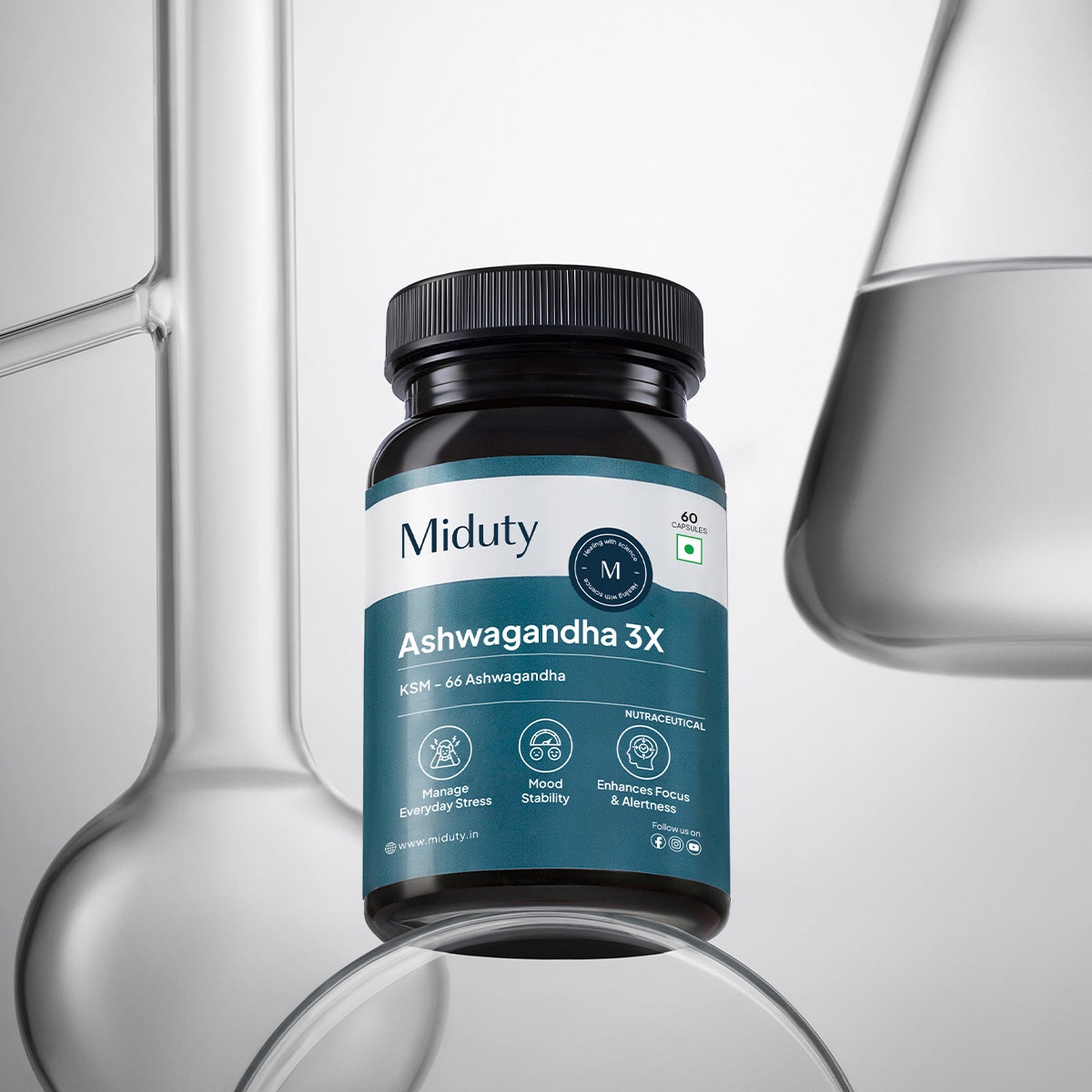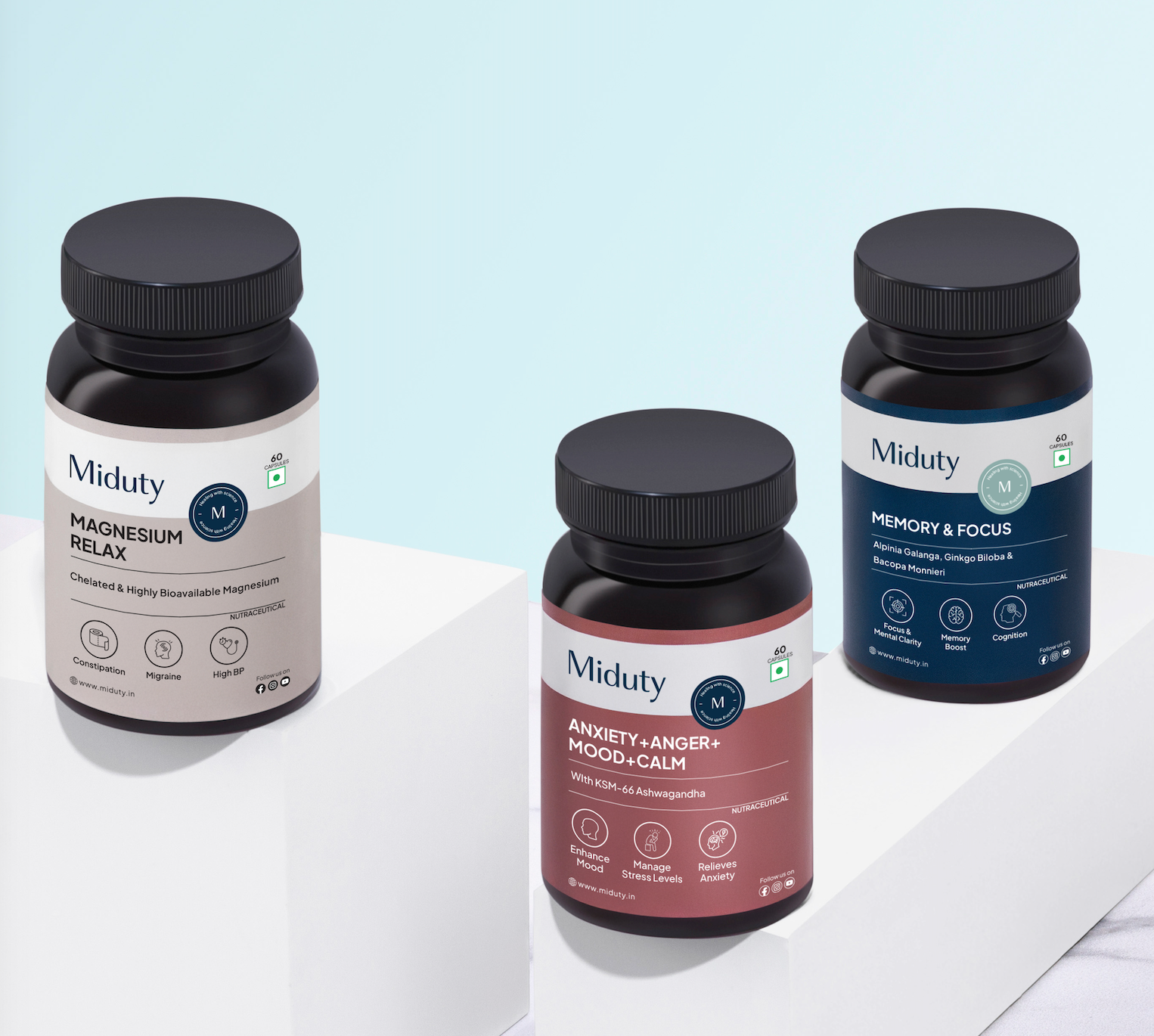
Stress vs Anxiety vs Depression: Know the Real Difference
In today's fast-paced world, terms like stress, anxiety, and depression are often used interchangeably. Many people describe feeling "stressed" when they're actually anxious, or "depressed" when they're dealing with everyday stress. While these conditions are connected and can overlap, they are not the same. Knowing the difference between stress, anxiety, and depression is essential for recognizing symptoms, seeking the right help, and finding effective ways to cope. In this blog, we'll break down what each condition means, how they're related, and the key differences that set them apart.
Key Takeaways
1. Stress is situational, anxiety is persistent, and depression is deep-rooted—knowing the difference is the first step to healing.
2. Stress fades when challenges pass, but anxiety lingers—and can even lead to depression if left unchecked.
3. Symptoms overlap, but triggers differ: stress is external, anxiety is future-focused, and depression often looks to the past.
4. Healthy habits like exercise, mindfulness, diet, and sleep play a powerful role in managing all three.
5. Supplements with Ashwagandha, L-Theanine, GABA, and Holy Basil offer natural, balanced support for mind and mood.
What Is Stress?
Stress is the body's natural response to pressure or demand. It often arises when you feel overwhelmed by tasks, deadlines, or life challenges. In small doses, stress can actually be useful—it sharpens focus and pushes you to perform. But when stress becomes constant, it can harm your physical and mental health.
Common Causes of Stress:
- Work deadlines or job insecurity
- Financial struggles
- Relationship issues
- Major life changes (moving, marriage, illness)
Symptoms of Stress:
- Headaches, muscle tension, or stomach issues
- Irritability and mood swings
- Fatigue or sleep problems
- Difficulty concentrating
Stress usually goes away once the situation resolves. But if it lingers, it can pave the way for anxiety or even depression.
What Is Anxiety?
Anxiety is more than temporary worry—it's an ongoing feeling of fear or dread that doesn't go away even when the stressor is gone. Unlike stress, which is usually tied to external circumstances, anxiety can appear without any obvious trigger.
Common Causes of Anxiety:
- Genetics or family history
- Traumatic experiences or ongoing stress
- Certain medical conditions
- Substance use or withdrawal
- Imbalances in brain chemistry
Common Symptoms of Anxiety:
- Persistent worry or nervousness
- Racing thoughts and restlessness
- Rapid heartbeat, sweating, or trembling
- Shortness of breath
- Trouble concentrating
- Avoidance of social or stressful situations
Anxiety becomes a disorder when it interferes with daily life for six months or more. Conditions like generalized anxiety disorder (GAD), social anxiety disorder, panic disorder, and phobias fall under this category.
What Is Depression?
Depression is a mood disorder characterized by persistent sadness, hopelessness, and loss of interest in activities once enjoyed. Unlike stress or anxiety, depression affects not just mood but also energy levels, motivation, and overall functioning.
Common Causes of Depression:
- Genetics or family history of depression
- Imbalances in brain chemicals (neurotransmitters)
- Traumatic or stressful life events (e.g., loss, abuse, major transitions)
- Chronic illness or certain medical conditions
- Substance use or withdrawal
- Hormonal changes (e.g., postpartum, thyroid issues)
Common Symptoms of Depression:
- Persistent sadness or emptiness
- Loss of interest in hobbies, work, or social activities
- Low energy and constant fatigue
- Changes in appetite or sleep patterns
- Feelings of guilt, worthlessness, or hopelessness
- Difficulty making decisions
- In severe cases, thoughts of self-harm or suicide
Depression is not simply "feeling down." It's a serious mental health condition that often requires professional treatment, including therapy, lifestyle changes, and sometimes medication.
The Overlap Between Stress, Anxiety, and Depression
Stress, anxiety, and depression are connected. In fact, prolonged stress can trigger anxiety, and long-term anxiety can increase the risk of developing depression. They often share similar symptoms, such as:
- Trouble sleeping
- Difficulty concentrating
- Irritability or restlessness
- Fatigue and low motivation
Because of this overlap, many people struggle to tell them apart. This is why understanding the difference between stress, anxiety, and depression is so important.
Difference Between Stress and Anxiety
One of the most common confusions is between stress and anxiety. Here's how to tell them apart:
-
Stress is usually tied to an external situation (like exams, work deadlines, or money problems). Once the situation is resolved, the stress typically fades.
-
Anxiety can persist even without a clear cause. It is more internal, often driven by excessive worry about what might happen rather than what is happening right now.
Example:
- Stress: Feeling overwhelmed about a big work presentation tomorrow.
- Anxiety: Feeling panicked for weeks about the possibility of failing, even when you're well-prepared.
In short, stress is situational and temporary, while anxiety tends to linger and may evolve into a disorder.
Difference Between Anxiety and Depression
While anxiety and depression often occur together, they are not the same:
-
Anxiety is marked by excessive fear and worry, often about future events.
-
Depression is characterized by persistent sadness and lack of interest, often focused on past events or a general sense of hopelessness.
Example:
- Anxiety: "What if I mess this up tomorrow?"
- Depression: "Nothing I do matters anymore."
It's possible to have both at the same time, which can make treatment more complex but not impossible.
Difference Between Stress, Anxiety, and Depression
|
Condition |
Trigger |
Emotional State |
Key Symptoms |
Duration |
|
Stress |
External Events ( Work, Finances, Deadlines) |
Overwhelm, Pressure |
Headache, Irritability, Sleep Issues |
Temporary, fades when resolved |
|
Anxiety |
Often Internal (Future Focused Worries) |
Fear, Dread, Restlessness |
Racing Thoughts, Fast Heartbeat, Avoidance |
Persistent, may last some months |
|
Depression |
Internal (Past or Present Focused) |
Hopelessness, Sadness |
Fatigue, Loss of Interest, Appetite/Sleep Issues |
Long Lasting, weeks to years |
Key Differences at a Glance
Let's have a look at key differences of these three disorders:
-
Focus: Stress stems from external pressures, anxiety centers on perceived future threats, and depression reflects an inner state of persistent low mood and loss of motivation.
-
Duration: Stress is usually short-term, while anxiety and depression tend to last longer and can deeply affect daily functioning.
- Energy: Anxiety often heightens energy through restlessness and worry, whereas depression lowers energy, leading to fatigue and disinterest.
How to Cope with Stress, Anxiety, and Depression
While these conditions differ, some coping strategies overlap and can help reduce their impact:
1. Exercise – Physical activity lowers stress hormones and boosts endorphins. Even a short daily walk or stretching routine can lift your mood and improve overall resilience.
2. Mindfulness & Meditation – Practices like yoga and deep breathing calm the nervous system. Consistently practicing mindfulness helps you stay present and reduces the cycle of overthinking.
3. Healthy Diet – Nutrient-rich foods support brain function and emotional balance. Cutting back on processed foods and stimulants like caffeine can also prevent mood swings and nervous energy.
4. Adequate Sleep – Rest is essential for managing mood and mental clarity. Creating a relaxing nighttime routine makes it easier to fall asleep and stay asleep through the night.
5. Therapy – Cognitive Behavioral Therapy (CBT) is highly effective for both anxiety and depression. Speaking with a trained therapist also provides tools for long-term coping and emotional growth.
6. Social Support – Talking to trusted friends or joining support groups helps reduce isolation. Surrounding yourself with understanding people makes challenges feel less overwhelming.
7. Professional Help – In cases of severe anxiety or depression, consulting a healthcare provider is essential for tailored treatment. Early intervention can prevent symptoms from worsening and lead to faster recovery.
What is the Best Supplement for Stress, Anxiety, and Depression?
A highly effective option is an anxiety supplement that combines Ashwagandha, L-Theanine, GABA, and Holy Basil. Ashwagandha helps lower cortisol and fight stress, while L-Theanine promotes relaxation without drowsiness. GABA calms overactive brain signals, and Holy Basil supports balance in both mind and body. Together, this holistic formula eases tension, reduces anxious thoughts, and improves overall mood naturally—without the harsh side effects often linked to synthetic alternatives.
Conclusion
Stress, anxiety, and depression are among the most common mental health challenges in the modern world. While they share similarities, each is unique in its causes, symptoms, and treatment approaches. Stress is often short-term and tied to external circumstances. Anxiety is persistent worry and fear, often without a direct cause. Depression is deep sadness and loss of interest that impacts overall functioning.
By learning the difference between stress and anxiety, and understanding how both relate to depression, we can better recognize what we're experiencing and find healthier ways to manage it. With the right knowledge, coping tools, and support, it's possible to break the cycle and move toward a calmer, healthier, and more balanced life.
Frequently Asked Questions on Stress, Anxiety and Depression -
Q1 - Can anxiety turn into depression?
Yes, anxiety disorders can increase the risk of developing depression, and it's common for people to experience both conditions at the same time. One can trigger or intensify the other. The persistent worry, fear, and panic linked to anxiety can be draining, often leading to feelings of helplessness and isolation, factors that may contribute to the onset of depression.
Q2 - What is the difference between stress and anxiety?
The main difference is that stress arises in response to an external trigger like a deadline or difficult situation and usually fades once the trigger is resolved, whereas anxiety is a persistent state of fear or worry that can occur without a clear cause and often lingers even after the stressor is gone.
Q3 - Can stress cause depression?
Yes, stress can contribute to depression particularly when it becomes chronic. Long-term stress can disrupt brain function and increase the risk of mood disorders like major depressive disorder. It may trigger depressive episodes or worsen existing depression. While the mechanisms are still being studied, prolonged activation of the body's stress response (HPA axis), changes in brain cells, and unhealthy coping behaviors all play a role in connecting stress to depression.
Q4 - Which is worse, anxiety or depression?
Neither anxiety nor depression is inherently worse. Their severity and impact depend on the individual, and the two often overlap—anxiety can lead to depression, and depression can fuel anxiety. Both are serious mental health conditions that can significantly reduce quality of life, interfere with school or work, and, if untreated, increase the risk of further complications.
Q5 - Which comes first, depression or anxiety?
There is ongoing debate, but research shows that anxiety and depression are closely connected, often sharing biological factors and common causes such as stress. Some studies suggest depression may develop first, while others indicate that anxiety often precedes it and increases the risk of depression. It is also possible that the two have a mutually reinforcing relationship, where each condition influences and worsens the other over time.
References
| Sr. No. | Reference Links |
| 1. | STRESS AND HEALTH: Psychological, Behavioral, and Biological Determinants |
| 2. | Anxiety |
| 3. | Depressive disorder (depression) |













